TLDR: This year the long effects of covid and Russia’s invasion of Ukraine generated global labour and energy supply shocks that fired up already-hot demand-led inflation from 2020 and 2021. That forced central banks to slam on the interest rate brakes, which is forecast to create recessions next year, just as inflation comes off the boil.
In Aotearoa, the Labour Government’s popularity cratered and house prices slumped at the same time as covid finally raced through a mostly-vaccinated population in a couple of waves. Covid, vaccination mandates and winter flu outbreaks stressed an under-invested and under-staffed health system to near breaking point and tore holes in our already-weak social cohesion, especially during protests at Parliament in February and March. The National/ACT Opposition is now in pole position to win the general election late next year just as unemployment starts rising and most homeowners with mortgages re-fix at rates closer to 7% than 3%.
The podcast above includes the final hoon of the year with co-hosts Bernard Hickey and Peter Bale, along with special guests Robert Patman, Josie Pagani and Rod Oram on 2022’s big events in the geo-political economy.

A deeper dive into the big events of 2022 and beyond
It has been a bigger year than most so I thought it would be worth looking at both the context into which it fell, and what that might mean for the future.
In the longer term, Aotearoa-NZ’s political economy of our ‘housing market with bits tacked on’ remains stuck in a rut of two fiscal rules that both major parties believe median voters want because they protect their tax-free gains in land values. Labour believes and National is reinforcing the fiscal framework that taxes should be not much more than 30% of GDP and net Government debt should never go over 30% of GDP. Those rules are stopping the Government from repairing a $100 billion infrastructure deficit built up over 30 years. They also stop the creation of the productive capacity for more high population growth that both parties want, but won’t talk about, plan for, or fund for.
In my view, we remain in an age of magical thinking where most politicians, politicians and voters believe we can still have low taxes and low investment with high population growth and high wages. Until we break out of this ‘unholy trinity’ or ‘impossible trilemma’ of low taxes and low investment, high migration-led population and nominal GDP growth and free movements of people, capital and goods and services, our society and economy will be stuck with:
low productivity and real wage growth from an economy based on that housing market and extractive export industries such as dairying, pine forestry, tourism and international education;
tax and investment settings that only make sense for land owners able to capture the leveraged, unearned and untaxed gains from residential land value inflation for themselves and their families; and,
the growing risk of an exodus to Australia from the half of our young people who were born and/or grew up in Aotearoa, but are from renting families and see little real future for themselves to build their own families here because our housing costs, both to rent and buy, are still the highest in the world relative to incomes.
Essentially, we cannot have it all without ending up ‘chasing our tails’ trying to fill the country with new migrant workers faster than our renting residents leave. In this scenario, we keep our low-tax and low investment settings and end up with the mulitple home-owning voters constantly lobbying for ever-looser migration settings, lower taxes, lower public investment and lower Government debt to keep generating the tax-free capital gains on land values that support their own financial futures.
That would leave us with a hollowed, brittle deeply uneven and unfair society, prone to destabilising exoduses of people and capital, along with the ongoing destruction of our water, soil, climate and overall wellbeing.
In 2023, I’d like to spend more time profiling and examining the various policy options for reform that might be possible in the current version of our political economy, especially in the leadup to elections. I welcome the guidance of paying subscribers in the poll below on how to focus my time working through The Kākā in the year ahead.
The three things that mattered most in 2022
In my view, the three events that changed our political economy and spotlighted the problems we have around housing, climate and child poverty were:
the Parliamentary protests in February and March that demonstrated how vulnerable our social cohesion and national security was to disinformation and disruption sourced from overseas, largely because of the widening gaps over the last 30 years between our rich and poor, the governed and governing, and between the big cities and provinces;
the Russian invasion of Ukraine in late February accelerated a drift away from globalisation that began in earnest after the Global Financial Crisis, along with forcing a panicked shift to both use more coal instead of gas globally in the short term, and ramp up moves to shift from fossil fuels to renewable energy in the long run; and,
the concerted and rapid tightening of monetary policy by developed world central banks, including our own, which hammered asset prices and may be a panicked over-reaction to the ongoing inflationary effects of supply shocks to labour, energy and food supplies from the long-term effects of covid and the Ukraine war.
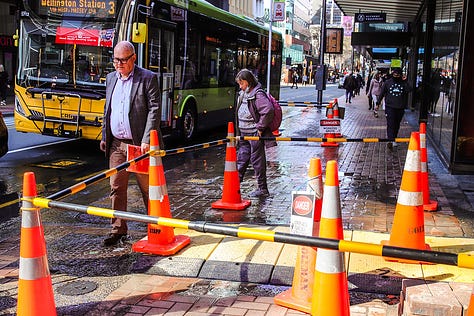
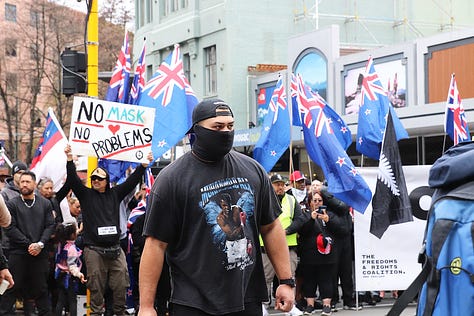
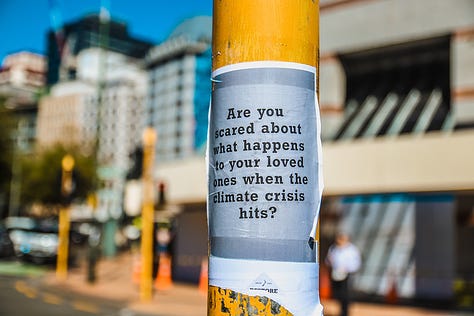
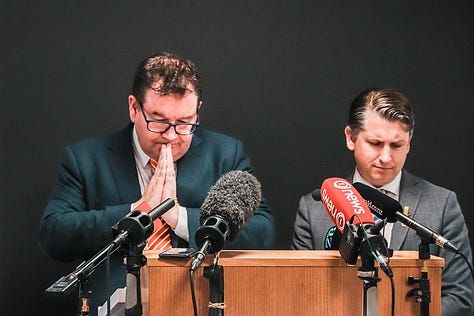
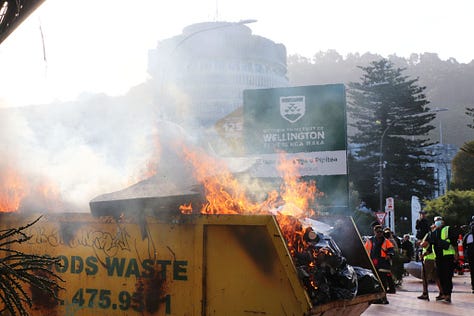
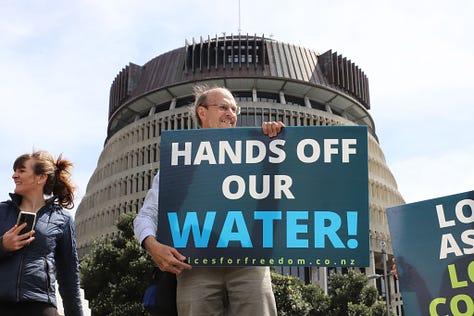
Photos by Lynn Grieveson for Getty Images and The Kākā
Three things to watch for in 2023
As direct and indirect consequences of those events, these are the three big things I’ll watching most closely for in 2023:
Australia’s increasing willingness to grant full residency and fast pathways to citizenship for New Zealanders from Anzac Day 2023, given Australia’s labour shortages are massively larger than ours and new Labor PM Anthony Albanese is keen to suck Kiwis over the Tasman to fill those gaps, using the promise of easy and fast ‘first class’ residency as bait on top of the usual 30-40% pay increases after housing costs;
A likely outright National/ACT victory in general elections due in September, October or November, which would lead to an immediate bounce in the housing market in anticipation of looser migration settings, a freeze in housing and transport investment needed to increase housing supply, along with Government spending cuts to engineer a faster return to surplus, less public debt and lower interest rates (which would also accelerate the housing bounce); and,
A likely pivot lower in official, wholesale and fixed mortgage interest rates by the final quarter of next year because of a sagging in global economic growth and inflationary pressures through early 2023 that force central banks to drag their expected rate tracks lower.
In short, I expect home-owning voters to be wealthier and happier by the end of 2023, but with young renters eyeing their exit options to Australia and employers pushing a new National/ACT Government even harder to loosen migration settings to fill the gaps. By the end of 2023, the big city rail and housing projects started by Labour will be frozen and councils will suspend their transport mode shift and medium density housing drives.
Floating the idea of The Kākā Project for 2023
However, through 2023 I’d like to build and stress-test a cohesive and politically possible set of policy ideas to help voters understand the issues and options through an election year.
I’d like to call this The Kākā Project and run it from late January until the election. It would culminate in a full document (a book?) and/or set of publicly shareable presentations, podcasts and articles to stimulate and inform debate. It would be based around:
the idea of a new annual broad-based and low-rate land value tax being paid by the owners of all occupied and unoccupied residential-zoned land;
that those land taxes pay for hundreds of billions of new housing, transport and water infrastructure investments over the next 50 years;
that those investments dramatically improve housing affordability, eliminate climate emissions, eliminate child poverty, keep net public debt below 60% of GDP and reverse $1 trillion worth of intergenerational wealth transfers that were engineered accidentally on purpose by most land-owning voters, politicians and policy-makers over the last 30 years;
how these types of policies might be politically viable in the current climate; and,
how they’d be designed around an agreed population plan for 15 million residents of a rich, stable, vastly-more-equal and growing carbon-zero economy by 2100.
I’d welcome your feedback below. It is conditional on the clear backing and support of paying subscribers, given it is likely to see me do less of the pure news summarising I have often done in the Dawn Choruses. I’d love paying subscribers to vote and/or comment below to give me more direction.
Tell me what you’d like me to work on next year
Ka kite ano
Bernard










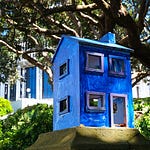
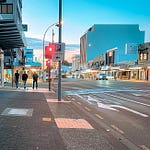

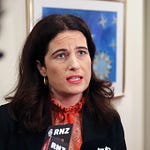
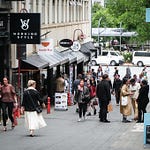
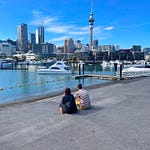

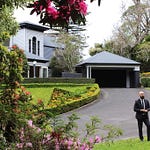
The year that was and the year ahead